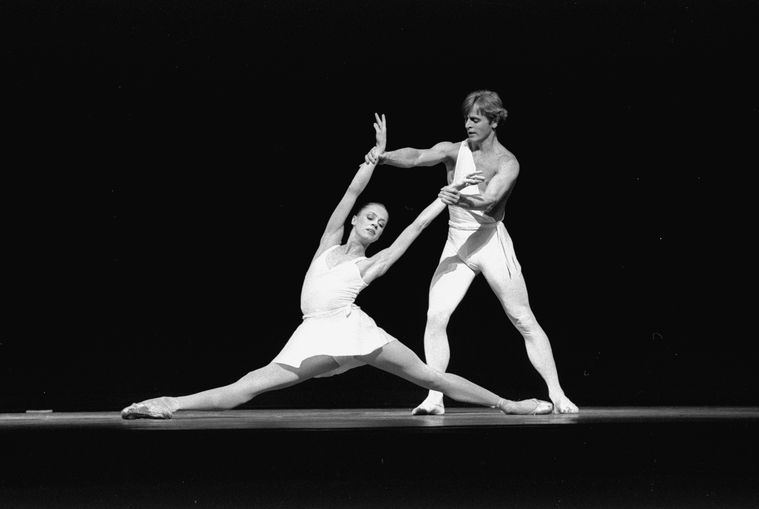
On Thursday, October 10th, I attended an event at the Performing Arts Branch of the New York Public Library called “Apollo.” The event was part lecture part film, and it was led by two leading scholars on dance, Alastair Macaulay and Robert Greskovic.
A little bit of background first. The ballet “Apollo” is a lesser-
The story of the ballet is centered on, no surprise here, the god Apollo. Apollo comes to life and is greeted by three Muses, Calliope, Polyhymnia, and Terpsichore. Each of the Muses gives Apollo a different gift. They give him the gift of poetry, rhetoric, and dance respectively. They dance with him both as a group and individually. At the end of the ballet, Apollo ascends back to Mount Olympus in the heavens with the Muses being left behind.
According to one of the presenters, Macaulay, this ballet is simultaneously about making art and the creation of art. It’s about the “growing up” of art. He talked in-depth about how in later iterations of the ballet, Balanchine would say that he wanted to get rid of the narrative entirely. Thus, in the production of the ballet with Mikael Barisnikov dancing the role of Apollo, he eliminated the Prologue section of the ballet and also changed the ending. According to MacCaulay’s lecture, Balanchine was apparently known for saying that in his mind, Apollo was always meant to be a work in progress.
So how does this fascinating obscure piece of dance fit into what we are dealing with as information professionals? For me, I found this event and piece of ballet history fascinating because of the way that the information about it was being cataloged and collected and later on, archived. Prior to this event, there was a three-day seminar with NYPL employees, the two men leading the event, and also some of the dancers who danced in the various productions that the show has been through throughout the years. Their information was collected via the archival video that was taken. The people who couldn’t be there at the seminar i.e. other dancers such as Mikael Barishnokov who contributed their information via one on one interviews with MacCaulay and Greskovic.
So the ultimate question is, how is all of this information being cataloged and then archived? I noticed before the lecture started, a video camera was set up in the back of the auditorium where the lecture was taking place. The employees running the lecture must have planned in advance for this archival footage to be taken. They must have wanted to save the presentation as a whole. However, how are the lecture itself and the interview material from the various collaborators being saved? For example, some people might not think it’s important to have the lecture notes that MacCauley wrote saved, cataloged and archived but some may. I personally would be interested in seeing those notes, but I know that many people wouldn’t. It relates back to some of
“Whether over ideas or feelings, actions or transactions, the choice of what to record and the decision over what to preserve, and thereby privilege, occur within socially constructed, but now naturalized frameworks that determine the significance of what becomes archives.” (3)
In looking at this particular ballet and how these two scholars were recording what was important, I thought it was interesting that they chose certain images and certain video clips over others. I know that I clearly missed a bunch of material in the three-day symposium that took place weeks prior because we only saw short clips from it, but I do think it’s interesting on what was preserved and what was not. Obviously, this is a lesser-known ballet, but it has big important names in the dance and classical music world. If this was a lesser-known ballet with no big names attached, would it still be archived in as much detail? Would anyone care to have a three-day symposium on this material? I’m not really sure. Schwartz also says that “control of the archive – variously defined – means control of society and
In conclusion, I feel that going to this lecture prompted me to think about a variety of issues in terms of being an information professional. It makes me think about how we’re archiving material and how we’re using it to move forward in our profession. I stand by my question of who wins here and who loses? Do we have an answer to what is getting saved, cataloged and archived or is it ultimately just random? I still feel that this ballet is one of the more obscure ones, and I know that I’m glad that I know about
Sources
NYPL Performing Arts Lecture series. Attended on October 10th, 2019.
Apollo (ballet). In Wikipedia. Retrieved October 15th, 2019 from https://en.wikipedia.org/wiki/Apollo_(ballet)